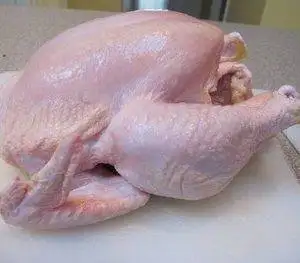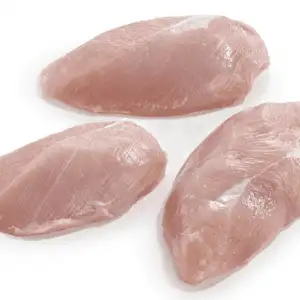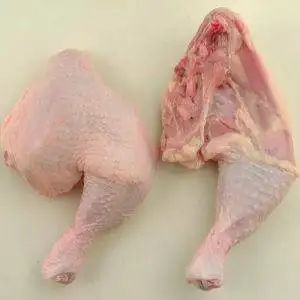Description
Halal Frozen Whole Turkey: The Complete Guide for Conscious Consumers
Introduction
In recent years, the demand for halal-certified food products has grown significantly across the globe. One item that has gained particular popularity is the halal frozen whole turkey. Once considered mainly a festive meal centerpiece in North America and Europe, turkey has now become a versatile protein enjoyed by Muslim and non-Muslim families alike.
The halal frozen whole turkey combines tradition, convenience, and dietary requirements into a single product. Whether it’s for Thanksgiving, Eid al-Adha, Christmas, weddings, or family gatherings, halal turkey is a perfect choice for anyone looking to enjoy a wholesome and ethically prepared meal.
In this comprehensive guide, we’ll explore everything you need to know about halal frozen whole turkey — from its religious significance and certification process to nutritional benefits, cooking methods, and buying tips.
What Does Halal Mean?
The term halal originates from Arabic, meaning permissible or lawful. In the context of food, halal refers to meat and other consumables that meet the requirements of Islamic law (Shariah).
For meat products, halal certification involves:
-
The animal being healthy and alive at the time of slaughter.
-
Slaughter carried out by a Muslim who recites the name of Allah (Tasmiyah) before the cut.
-
A swift and humane cut across the throat to ensure minimal suffering.
-
Complete drainage of blood from the animal’s body.
-
No contamination with haram (forbidden) items such as pork or alcohol during processing, packaging, or storage.
When it comes to turkey, halal certification guarantees that the frozen whole turkey has been processed according to these Islamic guidelines.
Why Choose Halal Frozen Whole Turkey?
Choosing a halal frozen whole turkey goes beyond religious requirements. It also reflects a broader lifestyle decision, emphasizing ethical practices, animal welfare, and healthier eating. Here are some key reasons:
1. Religious Compliance
For Muslims, consuming halal meat is not optional — it’s a religious obligation. Having access to halal-certified turkey means families can enjoy traditional meals without compromising faith.
2. Ethical and Humane Practices
Halal slaughter emphasizes humane treatment and swift processing, reducing unnecessary suffering for the animal. Many consumers, even non-Muslims, prefer halal-certified products for this reason.
3. Healthier Choice
Halal meat is often perceived as cleaner and healthier because the process ensures complete blood drainage, which reduces the chance of toxins or bacteria remaining in the meat.
4. Convenience for Modern Lifestyles
Frozen whole turkey offers convenience. You can store it for months and thaw it whenever you’re ready for a family dinner or special occasion.
5. Versatility in Cooking
Turkey is lean, protein-rich, and adaptable. From roasting and smoking to marinating and grilling, the halal frozen whole turkey can be transformed into countless delicious dishes.
Nutritional Value
Turkey is not only flavorful but also packed with nutrition. A 100-gram serving of roasted turkey breast provides:
-
Calories: ~135
-
Protein: ~30 g
-
Fat: ~1–3 g (depending on the cut)
-
Cholesterol: ~70 mg
-
Vitamins: B6, B12, niacin, and riboflavin
-
Minerals: Zinc, selenium, phosphorus, and iron
Key Health Benefits:
-
High Protein Content: Excellent for muscle growth and repair.
-
Low in Fat: Leaner than red meat like beef or lamb.
-
Heart-Friendly: Contains less saturated fat than many meats.
-
Boosts Immunity: Rich in selenium and zinc.
-
Supports Energy Production: B vitamins enhance metabolism and reduce fatigue.
For health-conscious consumers, halal frozen whole turkey is a guilt-free indulgence.
Halal Turkey vs. Regular
You might wonder: What’s the difference between halal turkey and regular turkey? While both may look identical on the outside, the distinction lies in slaughtering practices, certification, and assurance of purity.
| Feature | Halal Turkey | Regular Turkey |
|---|---|---|
| Slaughtering Method | By hand, with prayer, humane cut | Mechanical, may not meet halal standards |
| Blood Drainage | Ensures complete drainage | Not always complete |
| Contamination | No cross-contact with haram items | May be processed alongside pork/alcohol |
| Certification | Verified by halal authorities | Not applicable |
For Muslim families, halal certification provides peace of mind — they know the turkey is both permissible and ethically handled.
How to Buy Halal Frozen Whole Turkey
Purchasing a halal frozen whole turkey requires careful consideration. Here are practical tips:
1. Look for Trusted Certification
Always check for recognized halal logos or certification bodies such as:
-
Halal Monitoring Committee (HMC)
-
Islamic Food and Nutrition Council of America (IFANCA)
-
Halal Food Authority (HFA)
-
Local halal certification boards
2. Read Labels Carefully
Ensure the packaging explicitly states Halal Certified. Avoid vague terms like “prepared according to halal standards” without official verification.
3. Check for Freshness
Even if it’s frozen, freshness matters. Look for:
-
Solid freeze (no excessive ice crystals)
-
Proper vacuum sealing
-
Clearly marked expiration dates
4. Know Your Source
Buy from reputable halal butchers, supermarkets, or online halal food suppliers. Reviews and community recommendations are helpful.
5. Size Matters
Whole turkeys range from 8 to 24 pounds. Choose the right size depending on the number of guests. A general rule:
-
1 pound per person if no leftovers are needed
-
1.5 pounds per person if you want leftovers
Storing and Handling Halal Frozen Whole Turkey
Food safety is critical when dealing with frozen poultry.
-
Storage: Keep the turkey in a deep freezer at -18°C (0°F) or lower.
-
Thawing: Never thaw at room temperature. Instead:
-
Refrigerator thawing: 24 hours for every 4–5 pounds.
-
Cold water thawing: Submerge (wrapped) in cold water, change water every 30 minutes.
-
-
Refreezing: Avoid refreezing thawed turkey, as it may affect quality and safety.
Proper handling ensures both food safety and taste.
Cooking Ideas for Halal Frozen Whole Turkey
Turkey is a blank canvas for culinary creativity. Here are some popular ways to prepare halal turkey:
1. Classic Roast Turkey
-
Season with butter, garlic, rosemary, and thyme.
-
Roast until golden brown and juicy.
-
Serve with mashed potatoes and gravy.
2. Middle Eastern Spiced Turkey
-
Marinate with cumin, coriander, cinnamon, and olive oil.
-
Roast and serve with couscous or rice pilaf.
3. Stuffed Turkey
-
Fill the cavity with spiced rice, nuts, and dried fruits.
-
Ideal for Eid celebrations and festive gatherings.
4. Smoked Turkey
-
Use a smoker for deep, smoky flavors.
-
Great for outdoor barbecues.
5. Turkish-Style Turkey Kebab
-
Use leftover turkey to make skewers with spices and vegetables.
Common Mistakes to Avoid in Halal Frozen Whole Turkey
-
Thawing improperly (leaving it out on the counter).
-
Overcooking which dries out the meat.
-
Skipping brining — brining enhances juiciness.
-
Using small ovens — whole turkeys need space for even cooking.
-
Not checking the thermometer — always ensure an internal temp of 165°F (74°C).
Where to Buy Halal Frozen Whole Turkey
Depending on where you live, halal turkey is available at:
-
Halal Butcher Shops: Fresh and frozen options.
-
Supermarkets: Many chains now carry halal-certified poultry.
-
Online Halal Stores: Convenient for bulk buying or specialty sizes.
-
Local Farms: Some farms offer direct halal-certified poultry.
Popular online halal suppliers in North America, the UK, and the Middle East deliver halal frozen whole turkeys straight to your doorstep.
FAQs About Halal Frozen Whole Turkey
1. Can non-Muslims eat halal turkey?
Absolutely. Halal turkey is simply slaughtered according to Islamic law. It’s healthy, ethical, and suitable for everyone.
2. How long can I store ?
Up to 12 months if kept at -18°C (0°F) or lower.
3. Is halal turkey more expensive?
Prices can be slightly higher due to certification costs and ethical practices, but the difference is often minimal.
4. Can I stuff my turkey before freezing?
No. Always freeze the turkey separately and stuff it only before cooking.
5. What is the best way to season halal turkey?
Use a brine or marinade with herbs, spices, olive oil, and lemon for maximum flavor.
The Global Demand for Halal Frozen Whole Turkey
The global halal food market is projected to surpass $3 trillion by 2030, with poultry being a major contributor. Turkey, though traditionally associated with North American holidays, is becoming increasingly popular among Muslim consumers worldwide.
Countries like Saudi Arabia, UAE, UK, Canada, and Malaysia are seeing rising demand for halal frozen turkey, both in restaurants and at home dining tables.
Conclusion on Halal Frozen Whole Turkey
The halal frozen whole turkey represents more than just a meal — it’s a blend of tradition, faith, health, and culinary creativity. From ensuring religious compliance to offering a lean and nutritious protein option, halal turkey has secured its place as a preferred choice for families worldwide.
Whether you’re preparing a grand feast for Thanksgiving, Eid, Christmas, or a wedding celebration, the halal frozen whole turkey delivers on taste, ethics, and convenience.






Reviews
There are no reviews yet.